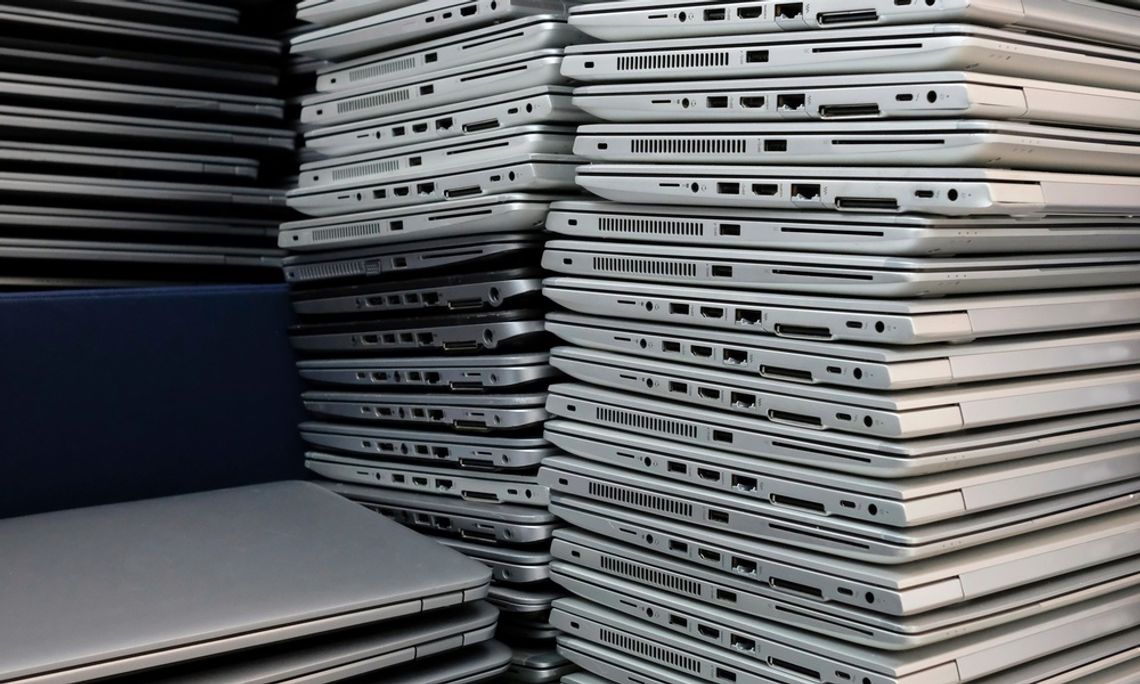Your company’s old computers contain sensitive information, and this information can be compromised if you dispose of the electronics incorrectly. Customer data, financial records, employee information, and proprietary business details all live on those hard drives—even after you think you’ve deleted everything.
Simply throwing old computers in the trash or donating them without proper preparation puts your business at serious risk. Data breaches from improperly disposed equipment can result in hefty fines, damaged reputation, and lost customer trust. Here’s how to dispose of company computers the secure way.
Remove and Destroy Hard Drives
You must physically remove hard drives from old computers. Professional data destruction services use specialized equipment to shred drives into tiny pieces, thus making data recovery impossible. This entails a cost, but it’s a necessary one to gain true security and peace of mind.
Some companies choose degaussing, which uses powerful magnetic fields to scramble data on traditional hard drives. However, this method doesn’t work on solid-state drives (SSDs), which many newer computers use.
Consider Professional Data Wiping Services
Data wiping software overwrites existing information multiple times with random data patterns. Professional services use military-grade wiping standards that meet government requirements for data destruction.
This method works well when you plan to donate or sell computers. The hardware remains functional, but the data becomes unrecoverable.
Partner with Certified E-Waste Companies
Reputable e-waste disposal companies handle the entire process from pickup to destruction. They’ll wipe or destroy hard drives, then responsibly recycle the remaining components.
Check for certifications like R2 (Responsible Recycling) or e-Stewards when choosing a disposal partner. These certifications mean the company follows strict environmental and data security standards.
Many certified companies will pick up large quantities of equipment from your office, making the process convenient for busy business owners. They often provide detailed reports showing exactly how they handled your equipment.
Create an Internal Disposal Policy
Develop clear procedures for retiring company computers. Train employees on the proper steps to take before disposing of any equipment. Your policy should include backing up necessary files, logging out of all accounts, and removing the computer from your network.
Consider implementing a replacement schedule that helps you make business tech last longer while planning for secure disposal. Regular maintenance and updates can extend your computers’ lifespan, reducing disposal frequency.
Document serial numbers and disposal dates for your records. This information helps with insurance claims and regulatory compliance if questions arise later.
Plan Ahead for Future Disposals
You should prepare for enterprise e-waste disposal before you need it. Research certified disposal companies in your area now, so you’re not scrambling when computers fail or become obsolete.
Additionally, budget for proper disposal costs in your technology planning. The expense of professional data destruction is minimal compared to the potential costs of a data breach from improper disposal.
Ultimately, computer disposal isn’t something you can put off indefinitely or afford to handle carelessly. Your business reputation depends on keeping customer and company data secure throughout its entire life cycle. By knowing how to dispose of company computers the secure way, you can protect your reputation while contributing to responsible environmental practices.


Comment
Comments